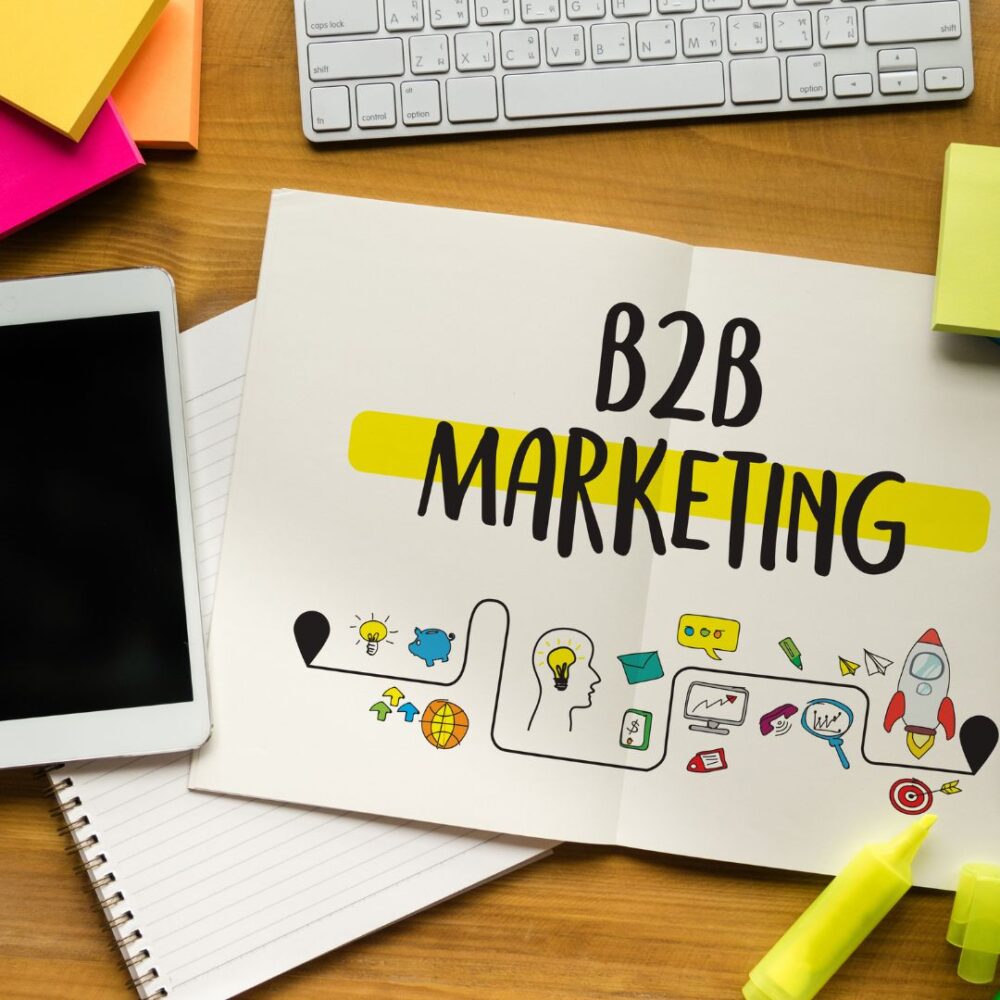
lead generation is essential to the success of any business. The problem, however, is that traditional lead generation methods may not be effective anymore. In this article, we’ll discuss multi-channel B2B lead generation and how it can help you outrank your competitors.
What is Multi-Channel B2B Lead Generation?
Multi-channel B2B lead generation is the process of using multiple channels to reach potential customers. These channels can include social media, email, search engine optimization (SEO), and more. The goal is to create a cohesive strategy that brings in leads from various sources.
Why is Multi-Channel B2B Lead Generation Important?
Multi-channel B2B lead generation is important because it allows you to reach potential customers where they are. Different people prefer different channels, and by using multiple channels, you increase the chances of reaching more people. Additionally, using multiple channels can help you build trust with potential customers by providing consistent messaging across all channels.
How to Create a Multi-Channel B2B Lead Generation Strategy
Creating a multi-channel B2B lead generation strategy involves several steps.
Step 1: Identify Your Target Audience
The first step in creating a multi-channel B2B lead generation strategy is to identify your target audience. This involves understanding who your ideal customer is, what their pain points are, and what channels they are most likely to use.
Step 2: Create a Content Strategy
Once you’ve identified your target audience, the next step is to create a content strategy. This involves creating content that addresses your target audience’s pain points and provides value. Your content strategy should include a mix of formats, such as blog posts, videos, and infographics, and should be tailored to the specific channels you plan to use.
Step 3: Choose Your Channels
The next step is to choose the channels you plan to use. This can include social media, email, SEO, paid advertising, and more. Each channel has its strengths and weaknesses, and it’s important to choose the channels that are most likely to reach your target audience.
Step 4: Implement Your Strategy
Once you’ve identified your target audience, created a content strategy, and chosen your channels, the next step is to implement your strategy. This involves creating and publishing content, engaging with your audience, and tracking your results.
How to Outrank Your Competitors
Now that you understand the basics of multi-channel B2B lead generation, let’s discuss how to outrank your competitors.
Step 1: Identify Your Competitors
The first step in outranking your competitors is to identify them. This involves understanding who your competitors are and what they are doing to generate leads. Once you’ve identified your competitors, you can analyze their strategies and find ways to differentiate yourself.
Step 2: Conduct Keyword Research
Keyword research is an essential part of SEO and can help you outrank your competitors. By identifying the keywords your competitors are targeting, you can create content that is optimized for those keywords and outrank them in search results.
Step 3: Focus on Quality Content
One of the best ways to outrank your competitors is by creating high-quality content. This involves creating content that is informative, valuable, and engaging. By focusing on quality content, you can build trust with your audience and establish yourself as an authority in your industry.
Step 4: Use Multiple Channels
As we’ve discussed, using multiple channels is essential to multi-channel B
Benefits of Using a Multi-channel Approach for B2B Lead Generation
Firstly, by utilizing multiple channels to generate leads, you can reach a wider audience and increase your chances of connecting with potential customers. With so many different platforms and channels available today, it’s essential to have a strategy that covers all your bases.
Secondly, by using a variety of channels, you can also improve the quality of your leads. Different channels may attract different types of customers, so by casting a wide net, you can ensure that you’re reaching the right people who are most likely to convert.
Thirdly, a multi-channel approach allows you to engage with leads at different stages of the customer journey. For example, social media may be a great way to reach customers who are in the early stages of the buying process, while email marketing may be more effective for those who are further along.
Now, let’s dive deeper into some of the specific channels you can use for B2B lead generation:
Search engine optimization (SEO)
SEO is the practice of optimizing your website and content to rank higher in search engine results pages (SERPs). By targeting the right keywords and providing high-quality, informative content, you can attract organic traffic to your website and generate leads.
Pay-per-click (PPC) advertising
PPC advertising allows you to place targeted ads on search engines and social media platforms, paying only when someone clicks on your ad. This can be a highly effective way to generate leads quickly, but it can also be costly if not managed correctly.
Social media marketing
Social media platforms like LinkedIn, Twitter, and Facebook can be a great way to connect with potential customers and generate leads. By creating engaging content and actively engaging with your audience, you can build trust and attract new leads.
Email marketing
Email marketing involves sending targeted messages to leads and customers via email. By providing valuable content and offers, you can nurture leads and encourage them to take action.
Content marketing
Content marketing involves creating informative, engaging content that attracts and engages your target audience. By providing valuable information and resources, you can build trust with potential customers and position your brand as a thought leader in your industry.
Overall, a multi-channel approach to B2B lead generation can be highly effective in attracting and converting new customers. By utilizing a variety of channels and platforms, you can reach a wider audience, improve lead quality, and engage with leads at different stages of the customer journey.
Tips
In order to make the most of a multi-channel approach, it’s important to have a clear strategy in place. Here are some tips to help you get started:
- Know your target audience: Before you start implementing your multi-channel approach, make sure you have a clear understanding of your target audience. Who are they? What are their pain points? What channels do they use?
- Set clear goals: What are you hoping to achieve with your multi-channel approach? Do you want to increase website traffic, generate more leads, or improve conversion rates? Having clear goals in place will help you measure the success of your efforts.
- Coordinate your efforts: Make sure your messaging and branding are consistent across all channels. This will help you build brand recognition and trust with your audience.
- Measure and adjust: As you start to implement your multi-channel approach, it’s important to track your results and make adjustments as needed. Use analytics tools to monitor your progress and make data-driven decisions about which channels are working best for you.
Now, let’s address some common questions about B2B lead generation:
FAQs:
What is B2B lead generation?
B2B lead generation is the process of identifying and attracting potential customers for your business. This can involve a variety of tactics, such as advertising, content marketing, and networking.
Why is a multi-channel approach important for B2B lead generation?
A multi-channel approach allows you to reach a wider audience and engage with leads at different stages of the customer journey. By using a variety of channels, you can improve the quality of your leads and increase your chances of converting them into customers.
What channels are best for B2B lead generation?
The best channels for B2B lead generation will depend on your target audience and business goals. Some popular options include SEO, PPC advertising, social media marketing, email marketing, and content marketing.
How can I measure the success of my B2B lead generation efforts?
Use analytics tools to track your website traffic, leads generated, and conversion rates. This will give you insight into which channels are working best for you and help you make data-driven decisions about where to focus your efforts.
How often should I adjust my B2B lead generation strategy?
It’s a good idea to review and adjust your strategy on a regular basis, such as every quarter or every six months. This will allow you to stay on top of trends and make adjustments as needed to ensure you’re reaching your target audience effectively.
In conclusion, a multi-channel approach to B2B lead generation can be highly effective when done correctly. By understanding your target audience, setting clear goals, coordinating your efforts, and measuring your results, you can improve the quality of your leads and increase your chances of converting them into customers.
Remember, it’s important to use a variety of channels that are relevant to your target audience and business goals. Don’t be afraid to experiment and try new tactics, and always be willing to adjust your strategy as needed based on data-driven insights.
If you have any questions or need help getting started with a multi-channel approach to B2B lead generation, feel free to reach out to us for assistance. We’re here to help you succeed!
Thank you for reading and happy lead generating!
